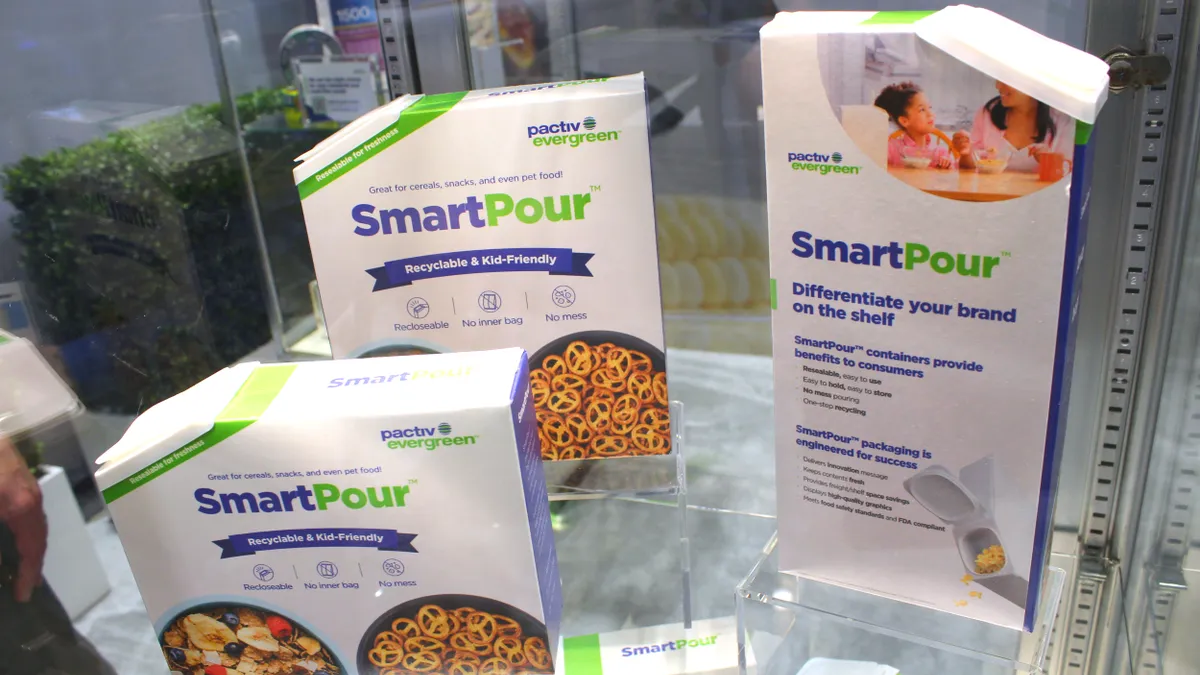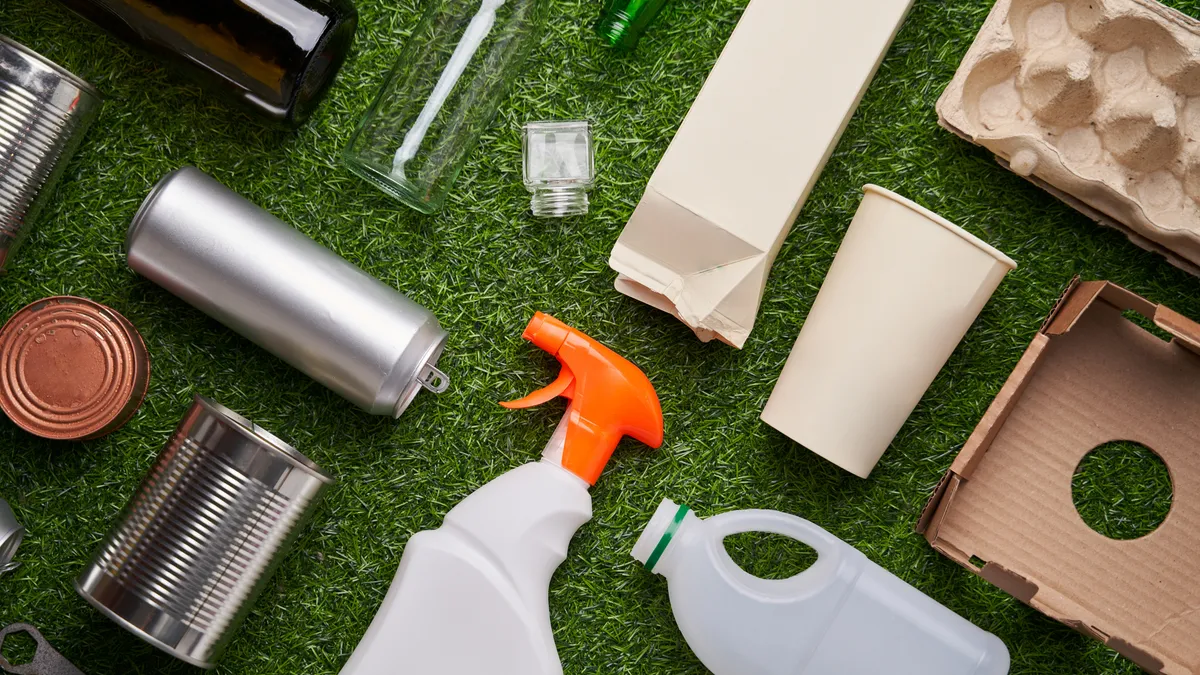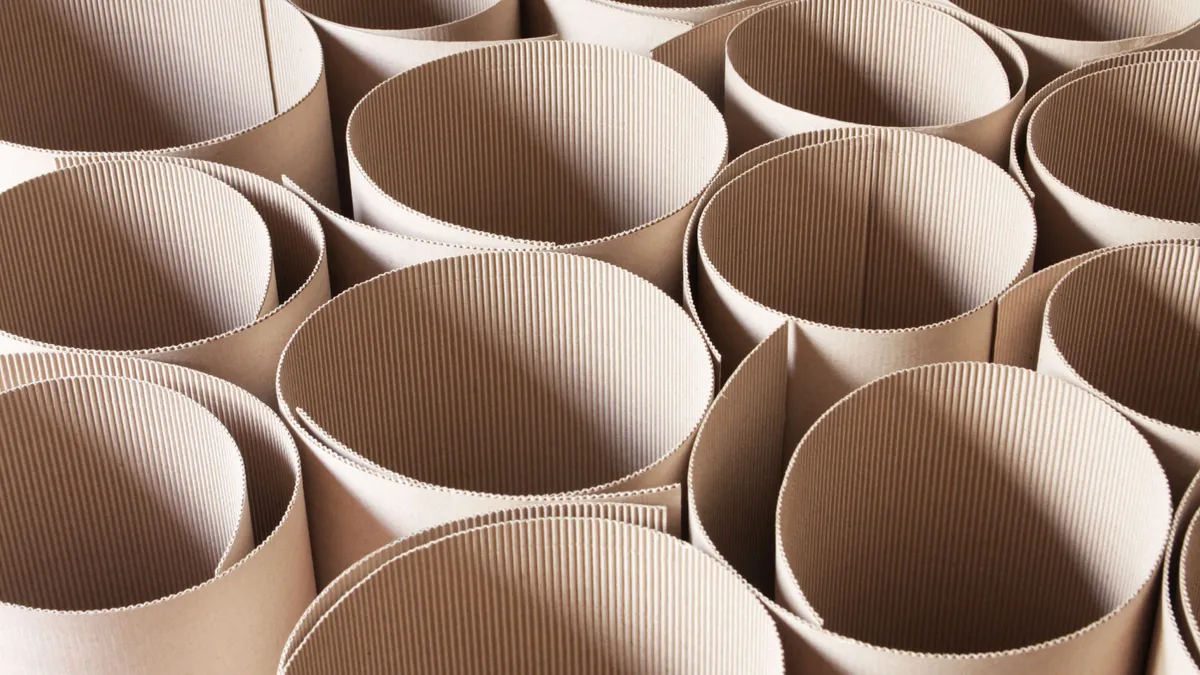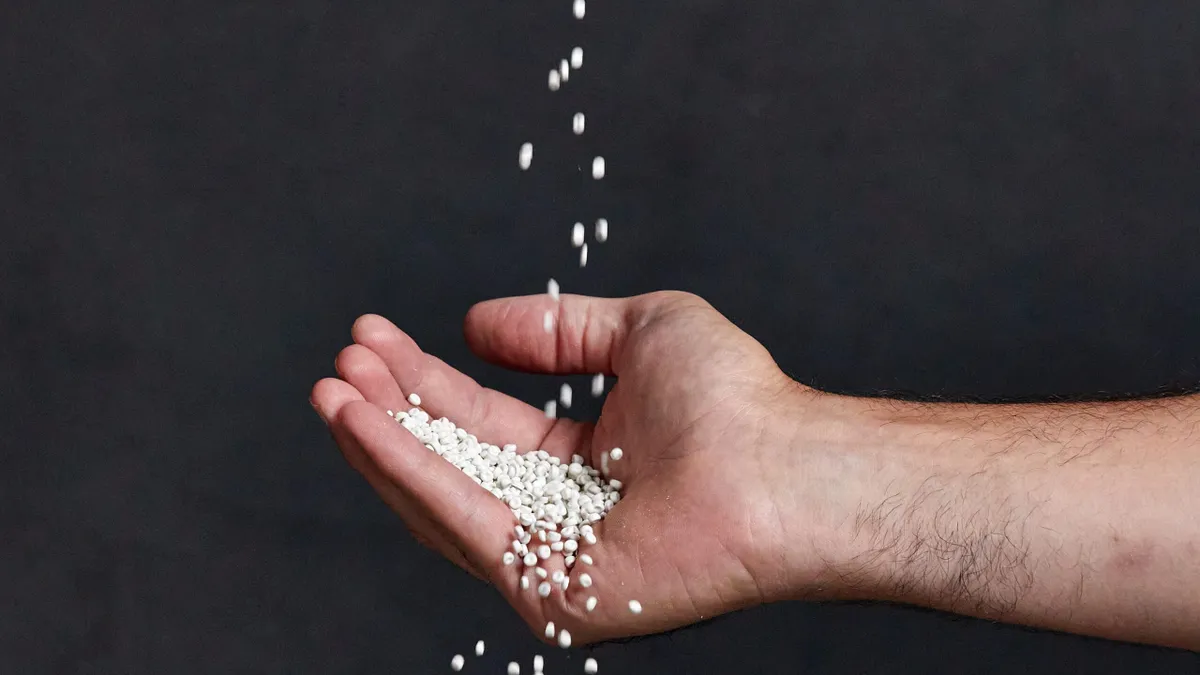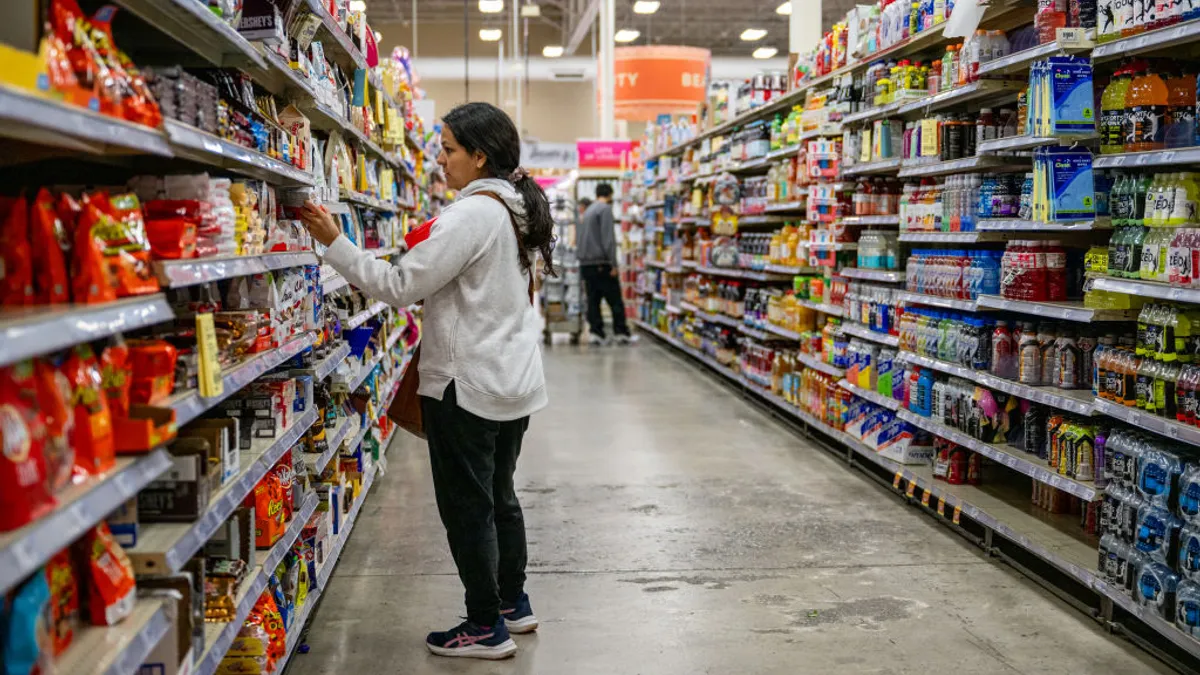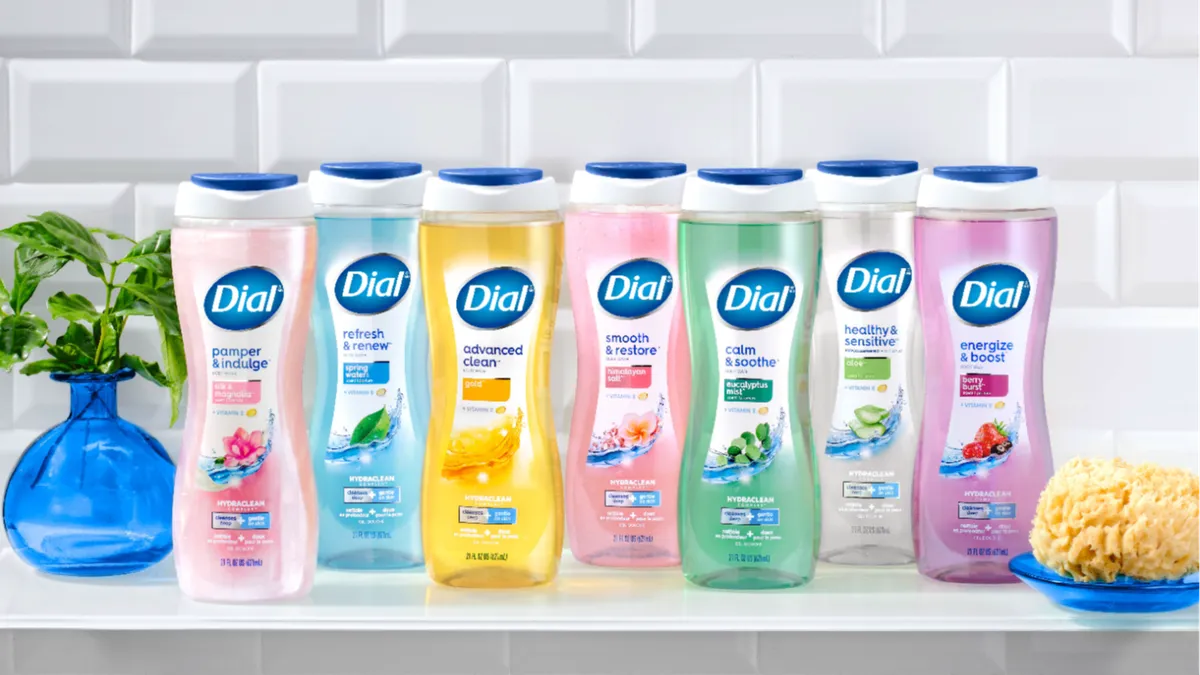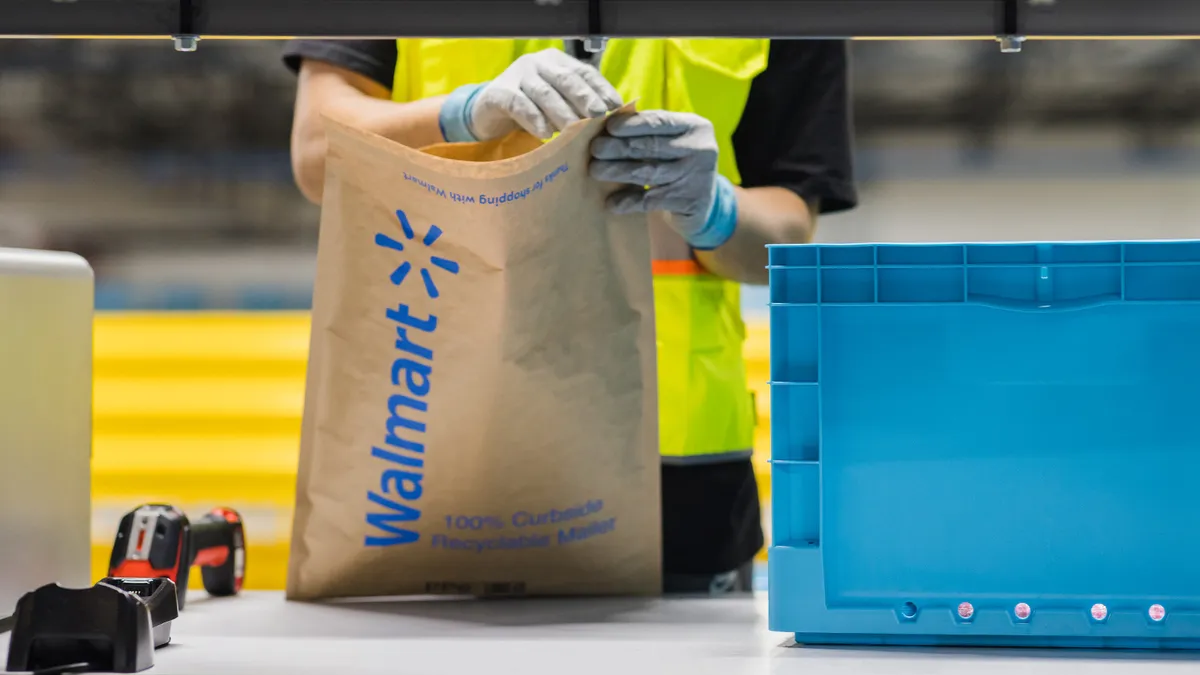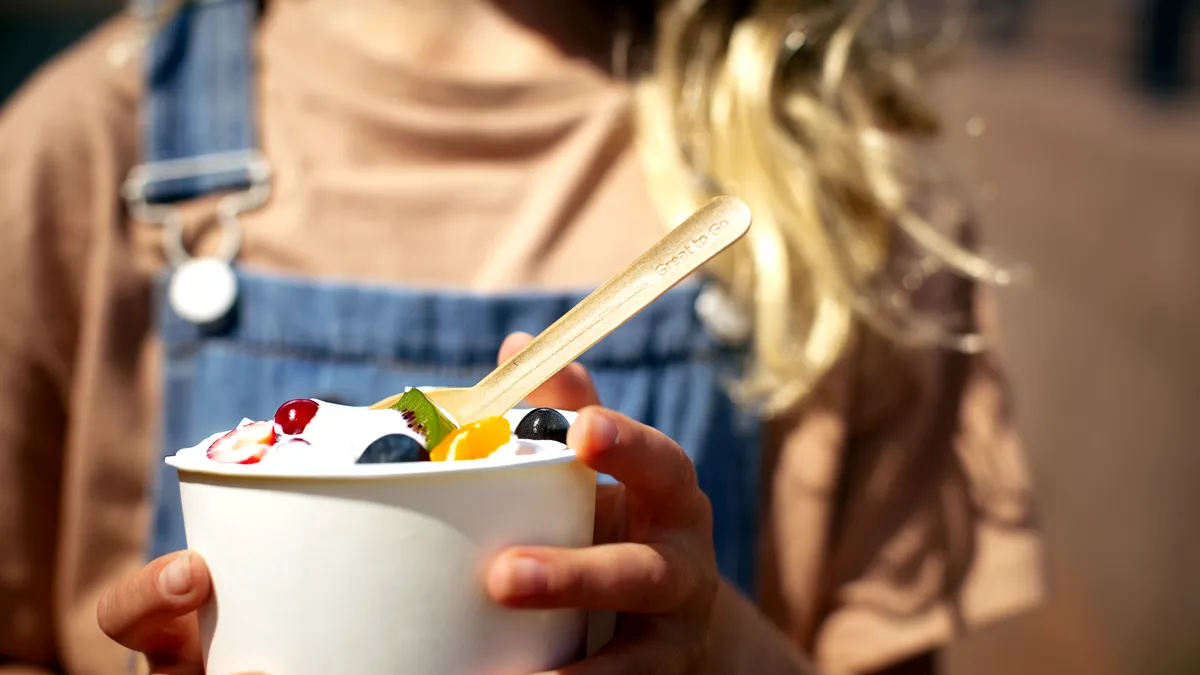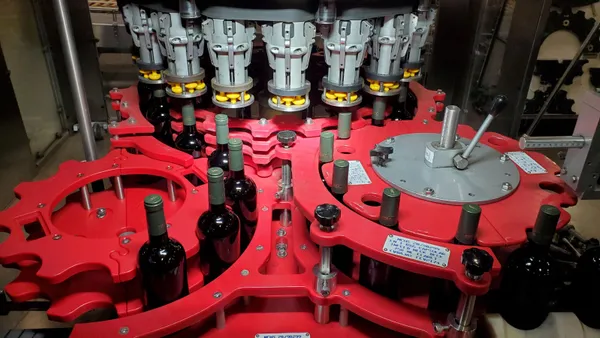Companies constantly innovate with technology and redesign their packaging to get better performance, improve marketability and enhance sustainability. Here’s a look at five new or redesigned packaging solutions that were featured during Pack Expo International in Chicago this week.
Pour your heart out
Pactiv Evergreen released its patented SmartPour, a carton with a resealable snap closure intended for pourable dry goods such as cereal, snacks, baking ingredients or laundry detergent. The carton is an alternative to conventional bag-in-box packaging.
"We've taken our 70 years of technology from our liquid packaging business — where we do milk cartons and cheese cartons and things like that — and we brought it into the dry goods space," said Tim Whelan, who works with the company’s product development and marketing teams.
The patent-pending HDPE closure is injection molded at a Pactiv Evergreen plant in the Chicago area. The wide mouth is intended for ease of pouring, and the large pull ring aids opening. The entire carton is free of PFAS.
The design allows for "one-step recycling" because the entire carton can go into a curbside recycling bin, as opposed to bag-in-box products in which the multilaminate plastic bag must be separated and typically goes to disposal, Whelan said. How2Recycle has pre-qualified SmartPour as "widely recyclable."
Although the carton is approximately the same weight as a conventional bag-in-box solution, it allows for greater product density because it can be filled to the top instead of leaving an air gap, Whelan said. That allows for up to 20% savings on space and shipping.
SmartPour comes in six different sizes and can have a vertical or horizontal orientation. So far, the response from consumer testing has been overwhelmingly positive, Whelan said.
"There's a lot of positive comments out there like, 'It's about time!' and 'Can all the cereal cartons be this way?'" he said. "It's actually being tested by some big CPG companies right now out in the marketplace, and it's done very well — some of their best scores they've ever had for an innovative package."
Sweet as sugarcane
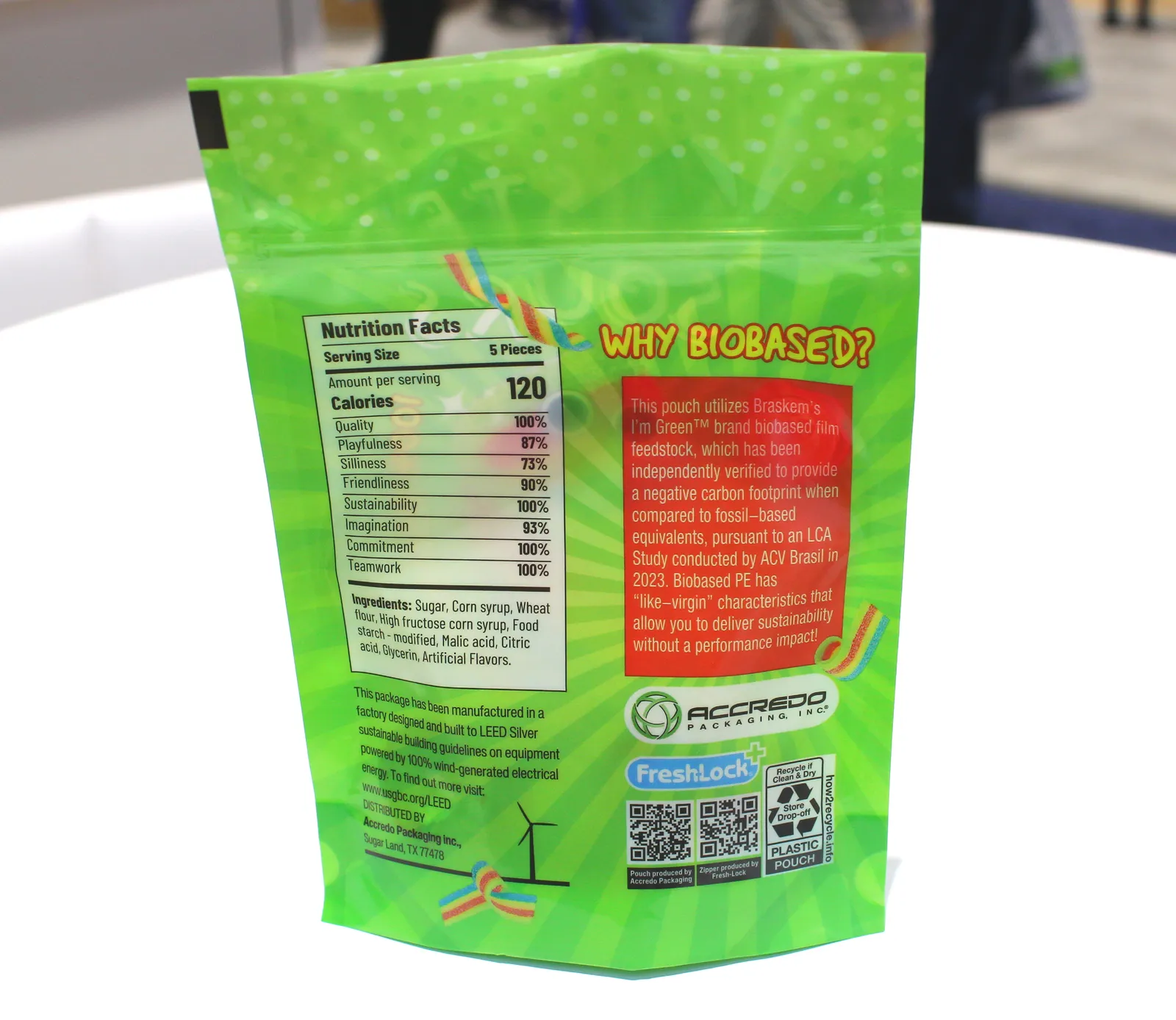
Accredo Packaging released its first plastic pouch that is 100% made from biobased material. Both the film and the Fresh-Lock zipper closure are made from sugarcane-derived resin.
The bags are food safe and also can be used for applications like cosmetics or personal care. They can be recycled through How2Recycle store drop-off programs, said Trei Johnson, Accredo's director of sustainability.
"When people think of 100% biobased content, they're normally thinking about compostable, they're thinking about biodegradable," Johnson said. But being recyclable through drop-off programs "means you don't have the challenges as it relates to access to industrial composting."
The pouches provide a negative carbon footprint compared with fossil-based plastic, Johnson said. The resin is from Braskem, which sources the sugarcane material from Brazil.
"They're using basically the whole crop," Johnson said. "If it wasn't used for these pouches, it wouldn't be used at all. So it's not competing with any sort of food [crops]."
Affordable aqueous coating
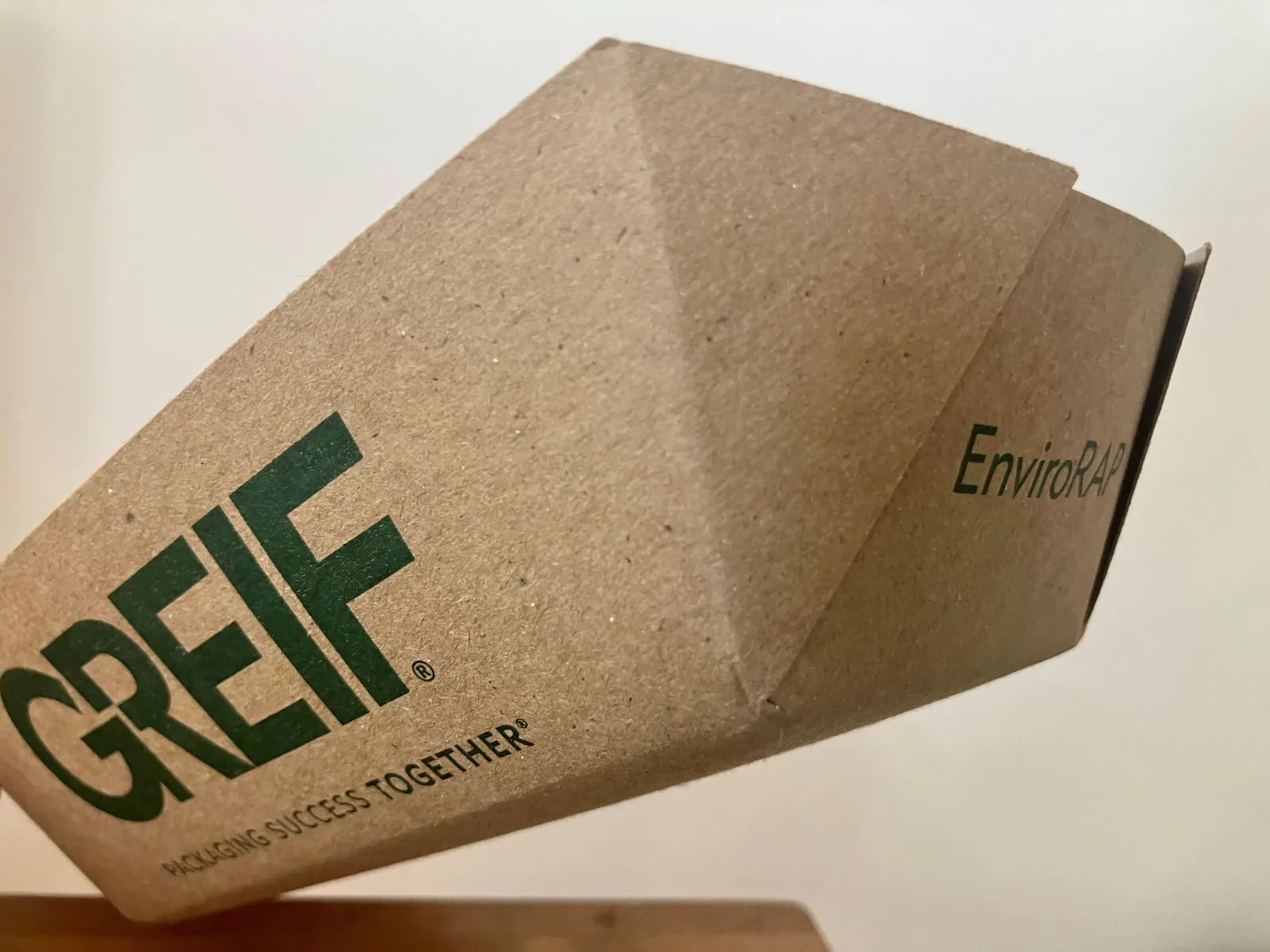
Greif showed off Envirorap, a 100% recycled paperboard product with a special aqueous coating for use in the food industry. Born out of Greif’s innovation team, the company says this is an alternative to polycoated paperboard, the plastic in which can hinder recycling.
Greif will coat the product with a water-based, recyclable and repulpable coating at its mills, which the company says reduces an extra step and cost. Converters can buy the material and then turn it into various food service packaging products.
In the mail
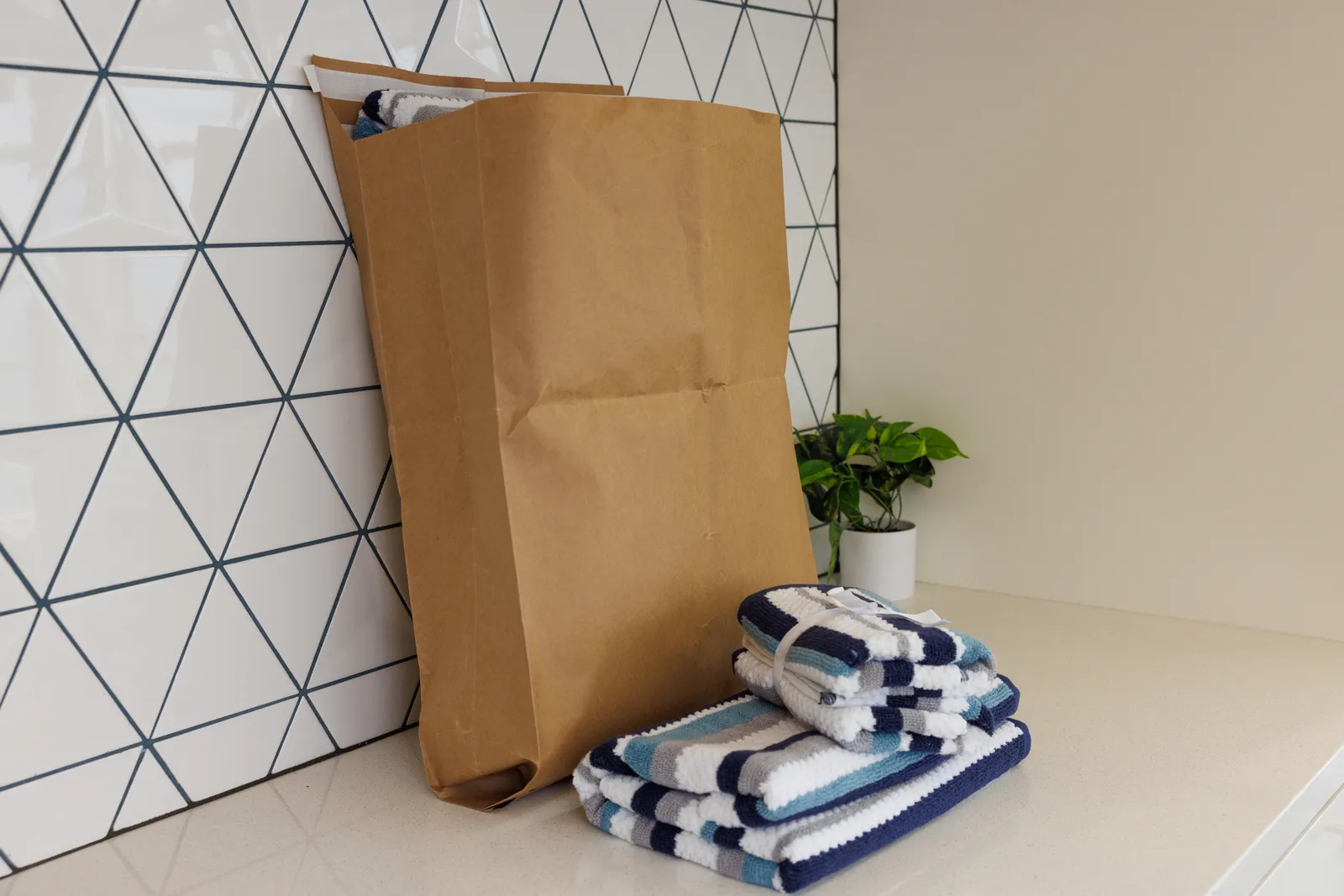
Georgia-Pacific expanded its EarthKraft unpadded mailer portfolio with larger and gusseted options. The new side- and bottom-gusseted mailers expand to hold larger products for e-commerce shipments than earlier versions. EarthKraft unpadded mailers now are available in four standard sizes and can be customized.
Like the original unpadded mailers introduced last year, the new versions are fiber-based and “widely recyclable” curbside, according to G-P. The mailers are lighter weight than the boxes used for many e-commerce shipments, which results in lower transportation emissions, according to a spokesperson.
Earlier this year, the company opened a new production line for unpadded mailers in McDonough, Georgia, and it expects to open additional lines next year.
Adhering to lower emissions
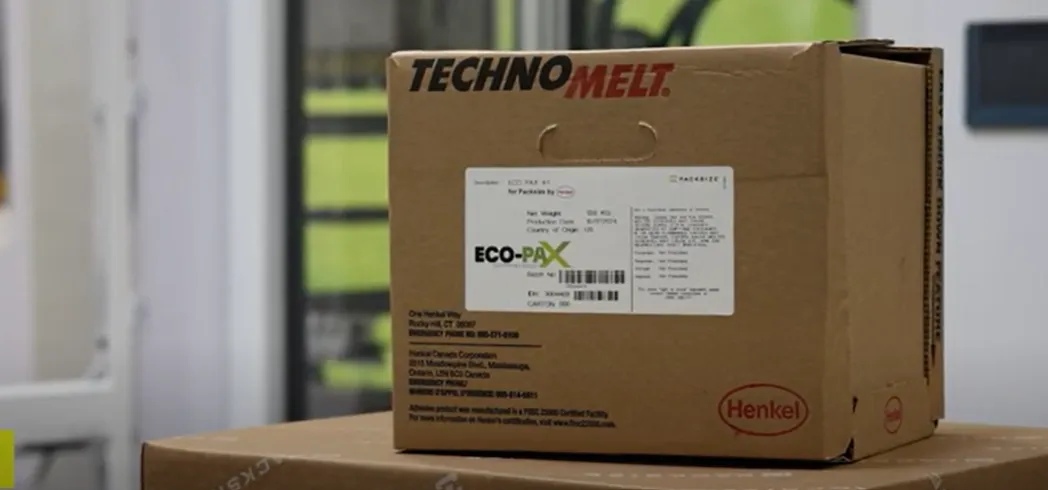
More sustainable choices aren’t just about the main substrate of a package — they involve all components, even glue that’s practically invisible.
Right-sized boxes company Packsize is lowering the environmental impact of its packages by transforming what holds them together: a biobased hot melt adhesive. Working with Henkel Adhesive Technologies, Packsize is implementing Eco-Pax across its portfolio, impacting an estimated more than 340 million boxes annually.
Traditional hot melts feature more emissions-intensive fossil-based ingredients, according to the companies.




